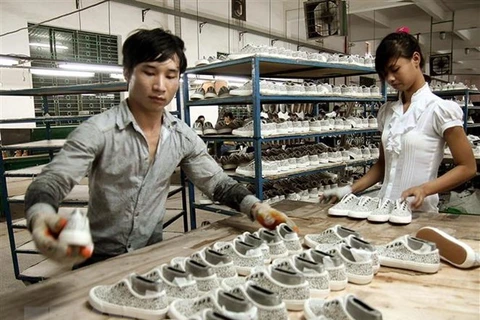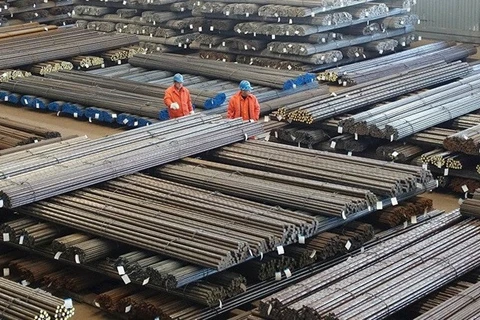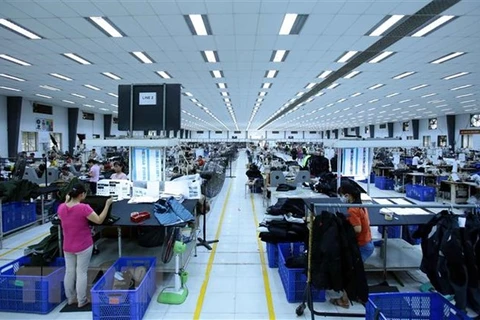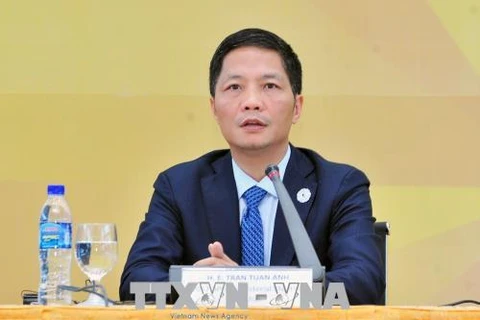Ho Chi Minh City (VNA) – Vietnam’s joining of free trade agreements (FTAs) is quite suitable in the context of trade globalization. However, to promote the efficiency of boosting exports, a concerted policy system is needed to help businesses successfully take advantage of benefits brought by the FTAs, according to insiders.
A survey by the Vietnam Chamber of Commerce and Industry (VCCI) shows that the rate of taking advantage of FTA benefits by Vietnamese enterprises is falling.
Businesses attributed the fall to shortcomings in State offices’ enforcement of policies, strict rules of origin, and their lack of information about commitments and how to take full advantage of the FTAs. Many also acknowledged that their firms’ competitiveness is weaker than that of partners whose countries are also members of the FTAs.
The garment and textile sector is considered one of those taking the most advantage of FTA benefits in Vietnam. However, President of the Ho Chi Minh City Textile and Garment - Embroidery Association Pham Xuan Hong said that the sector only succeeds in doing so with the Republic of Korea, while the rates with other partners remain low.
The reason is that different FTAs have different requirements on rules of origin, Hong elaborated, adding that many FTAs request clarification of origin of yarn, while Vietnam mainly imports materials from China.
According to experts, the rate of enterprises bringing into full play the FTAs has been improved remarkably, from 10 percent at first to 38 percent at present. However, it is not enough to equilibrate the trade balance with partners.
They said that together with tariff reduction, new-generation FTAs include strict regulations on technical standards, source of origin, and intellectual property, which have made Vietnamese enterprises fail to be adaptive to these agreements.
To meet expectations when joining FTAs, Vietnam should carry out measures in a concerted way to increase competitiveness of exporters, experts said.
Pham Quynh Mai, deputy head of the Multilateral Trade Policy Department under the Ministry of Industry and Trade, suggested businesses take the initiative in accessing information about the FTAs and their contents to make use of rules on origin in a systematic and effective manner.
Enterprises should also improve technology and increase product quality, as all kinds of products which hope to enjoy tariff incentives and be welcomed by consumers must meet all quality and technical requirements committed, Mai added.
Nguyen Thi Tue Anh, deputy director of the Central Institute for Economic Management (CIEM), said that the small scale is a week point of Vietnamese enterprises, so they are incapable of meeting big orders.
She suggested they connect with others in the same sector to share orders, or cooperate with multi-national groups and businesses to bring opportunities into full play to participate in the regional and global supply chains.
Besides efforts of enterprises, the Vietnamese Government should focus on supporting enterprises to export their strong products by guiding them to implement rules of origin and simplifying procedures of certification and specific inspections, experts advised.-VNA
VNA
























